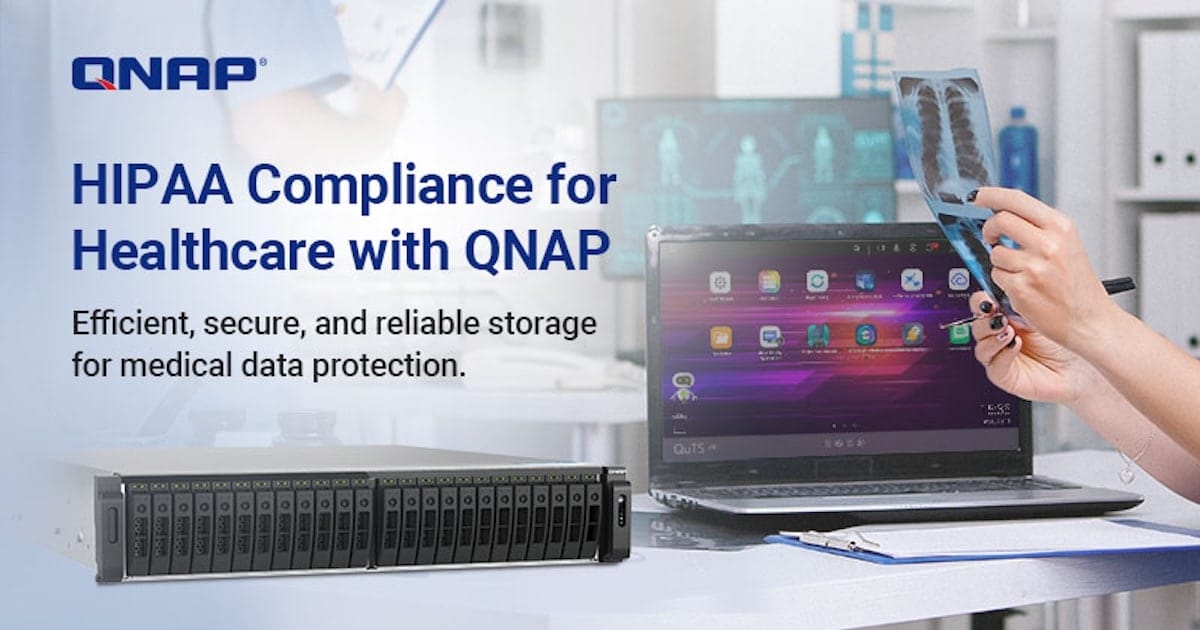The Taiwanese company offers immutable storage, threat detection, and advanced backup to protect electronic medical information.
Protecting electronic medical data has become a critical priority for hospitals and clinics worldwide. In this context, QNAP® Systems, Inc., a leading manufacturer of Network Attached Storage (NAS) solutions, has introduced new features specifically designed to help healthcare organizations comply with the U.S. HIPAA (Health Insurance Portability and Accountability Act) regulations, which govern the protection of electronic protected health information (ePHI).
Through a combination of multi-layer cybersecurity technologies and immutable storage, QNAP enables medical centers to protect access, transmission, and storage of sensitive clinical data, all without compromising operational efficiency or significantly increasing the management burden on IT teams.
Solutions Tailored for the Healthcare Sector
As noted by Andy Yu, QNAP’s product manager, "Our high-security NAS solutions help achieve HIPAA compliance by ensuring data integrity and regulatory adherence while reducing the management burden on IT teams." Key features of QNAP’s approach for healthcare environments include:
Security Based on Zero Trust Model
QNAP’s NAS system applies a zero trust security policy through:
- Granular access control with permission management and two-factor authentication (2FA).
- Firewall protection and proactive monitoring of anomalous login attempts.
- Access limited exclusively to authorized personnel who need to handle ePHI.
Data Integrity Protection and Encryption
QNAP’s NAS solutions incorporate AES-256 encryption, self-encrypting drives (SEDs), and WORM (Write Once, Read Many) technology, which prevents unauthorized modifications or deletions. This ensures that patient records and medical histories remain unchanged over time.
Backup and Disaster Recovery
To meet long-term preservation standards required in the healthcare sector, QNAP integrates technologies for:
- RAID, providing hardware failure tolerance.
- Snapshots and external backups, facilitating quick data recovery after failures or ransomware attacks.
- Compatibility with multiple backup destinations, including cloud storage or remote data centers.
Defense Against Threats and Ransomware
The platform also enables the detection of abnormal file behaviors through AI-based analysis and can integrate with NDR (Network Detection and Response) devices from the ADRA series to strengthen the security of the clinical environment against cyberattacks.
Audits and Regulatory Compliance
One of HIPAA’s key requirements is the traceability of access and operations on ePHI. QNAP provides:
- Centralized logging of activity logs, user access, and operations on data.
- Tools to facilitate internal audits and external reviews related to regulatory compliance.
A Step Forward in Medical Privacy Protection
Secure, regulatory-compliant storage like HIPAA has become an essential component for hospitals, private clinics, research centers, and laboratories. Adopting solutions like those from QNAP represents a strong response to growing security threats and the need to ensure patient privacy.
In this way, QNAP strengthens its role as a strategic ally in the healthcare sector, providing reliable, scalable storage technology tailored to the most demanding data protection requirements.

